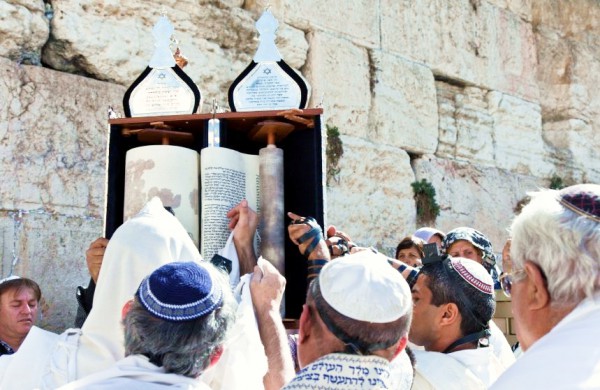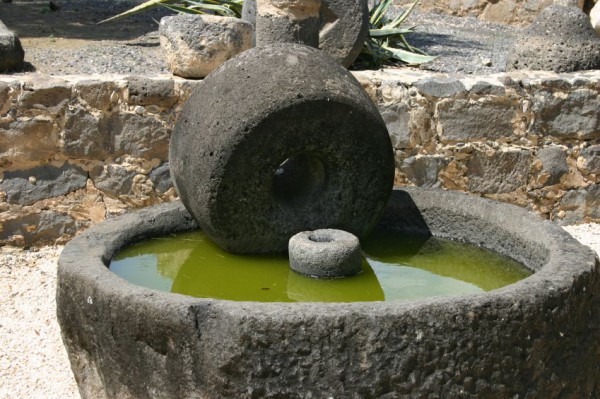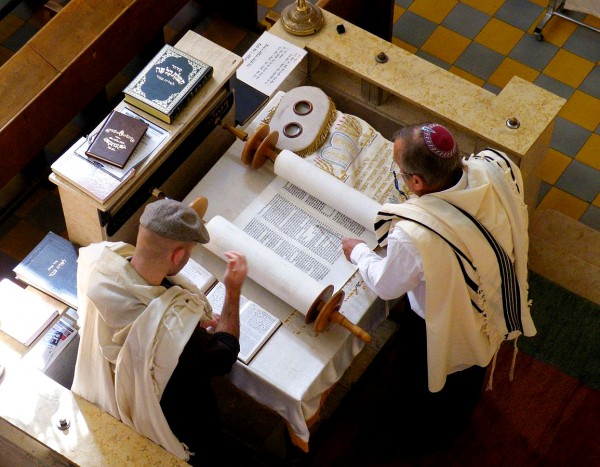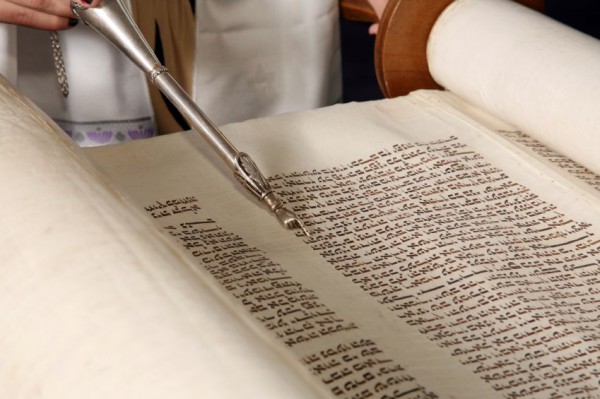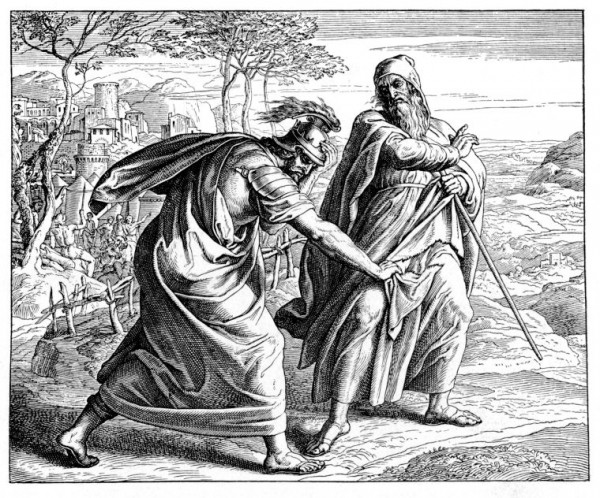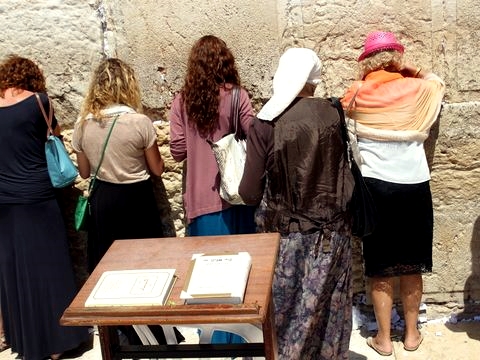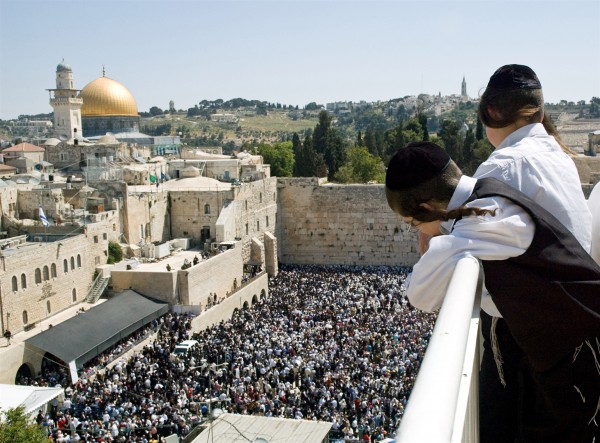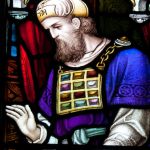Parasha Tetzaveh (You Command)
Exodus 27:20–30:10; Deuteronomy 25:17–19; 1 Samuel 15: 2–34; Hebrews 13:10–16
This week’s Parasha coincides with Shabbat Zachor (remember), which is the Shabbat immediately before Purim, the festival that begins Saturday night (February 23). Because of Purim, the following special reading is added to the Parasha:
“Remember what the Amalekites did to you along the way when you came out of Egypt. . . . When the Lord your God gives you rest from all the enemies around you in the land He is giving you to possess as an inheritance, blot out the name of Amalek from under heaven. Do not forget!” (Deuteronomy 25:17–19)
In last week’s Parasha, we read that God gave to Moses detailed instructions on how to construct the Sanctuary, and called for offerings from the Israelites to build it.
This week’s Parasha begins with the commandment to the children of Israel to bring the pure olive oil for the menorah in the Mishkan (Sanctuary), so the lamps in the Tent of Meeting could continually burn.
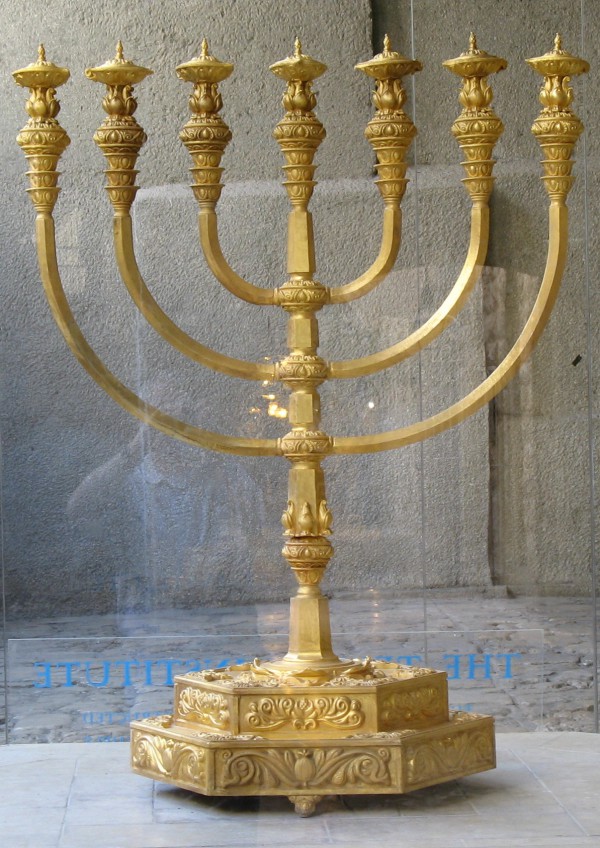
The above replica of the menorah that once stood in the Holy Temple in Jerusalem was created by the Temple Mount Institute. Its design is based upon depictions in the archaeological record. The Institute has made this menorah in pure gold in anticipation of the building of the Third Temple.
“Command the Israelites to bring you clear oil of pressed olives for the light so that the lamps may be kept burning.” (Exodus 27:20)
Oil was also used in the priests’ ordination ceremony. Not only were the priests’ heads anointed with it, but they also presented to God a wave offering of unleavened bread prepared with oil.
For the morning offering, the priests were to offer a year old lamb with the finest of flour, oil from pressed olives, and wine.
The oil represents the anointing, which in Hebrew is the same root as Messiah (Mashiach—the Anointed One) as in “Why do the nations rage… Against the Lord and against His anointed [M’shichoh]” (Psalm 2:2).
The anointing has everything to do with the flow of pure olive oil, which represents two things:
- The olive tree that represents peace (shalom).
- The pure olive oil that represents olives after pressing to remove the bitter juices.
Olive oil production in Israel is a process with many life lessons about our latent potential.
The workers spread out big sheets under the trees and then, using sticks, they beat the branches until the olives fall off. They are gathered in the sheets and made into pure olive oil.
“The Lord called you a thriving olive tree with fruit beautiful in form.” (Jeremiah 11:16)
Just as it takes a serious beating to get those olives off the branches, sometimes it feels like we are taking a beating in life, too.
In order to make the olives palatable and obtain the pure olive oil, the bitter juices are ground and then squeezed in an olive press.
Since green olives produce a more bitter oil, they remain under the mill stone for 30 or 40 minutes, or sometime a heavy rock, to extract the bitterness and improve the flavor.
So, too, do those bitter juices need to be pressed and squeezed out of us in order that we can be used by the Lord.
And just as it took the finest and purest olive oil to light the lamps in the Holy Temple, we also need the pure oil of the anointing to burn brightly for the Lord.
So despite the beating, pressing and grinding that we experience, we should be patient and not give up hope. The Book of James tells that we need to allow patience to do its job when we are tested so that we will be complete and whole, lacking nothing in our characters. (James 1:2–4)
Only then will we end up with enough of the pure olive oil to keep our lamps lit until the break of day.
“The path of the righteous is like the shining sun, that shines every brighter unto the perfect day.” (Proverbs 4:18)
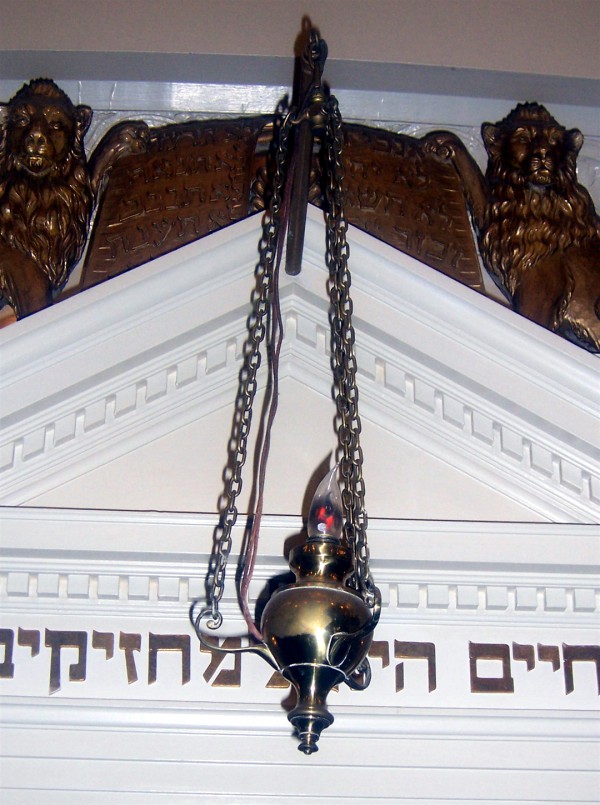
The Ner Tamid (Eternal Light) burns perpetually in Jewish synagogues near the Aron HaKodesh (Ark of the Law). It represents the light that burned continuously in the western section of the Holy Temple in Jerusalem.
Bitterness and the Anointing
If it feels like our light has gone out, then perhaps we should check if we have allowed seeds of bitterness to take root in our heart.
Bitterness will prevent us from enjoying peace – with others, with ourselves and with God.
“Pursue peace with all people, and holiness… looking carefully lest anyone fall short of the grace of God, lest any root of bitterness springing up cause trouble, and by this many become defiled.” (Hebrews 12:14–15)
Bitterness, when allowed to take root and grow in our hearts, will not only cause us trouble, it will also defile many around us, including our loved ones.
Sometimes trials and tribulations come into our lives to squeeze the bitterness out of us. God may be that heavy rock that sits upon our lives until we are purified and refined.
“I say to God my Rock, ‘Why have You forgotten me? Why must I go about mourning, oppressed by the enemy?’” (Psalm 42:9)
Haftorah (Prophetic Portion)
“This is what the Lord Almighty says: ‘I will punish the Amalekites for what they did to Israel when they waylaid them as they came up from Egypt.’” (1 Samuel 15:2)
The alternate Haftorah reading for the Shabbat Zachor (which means “remember”) precedes the Festival of Purim. It recalls how Amalek, the ruthless enemy of Israel, attacked them in the wilderness when they fled Egypt.
Not only did they attack Israel at Rephidim, they also resisted Israel’s entrance into the Promised Land. God, therefore, vowed to blot out the memory of Amalek from under heaven and to be at war against the Amalekites from generation to generation. (Exodus 7:14, 16)
The Almighty God has a long memory when it comes to attacks against His covenant people Israel. He remembered Amalek’s attack and generations later executed judgment against them:
“Now go, attack the Amalekites and totally destroy all that belongs to them.” (1 Samuel 15:3)
But King Saul did not fully obey God’s command. He spared Agag, the king of the Amalekites, and took the best of the livestock.
“But Saul and the army spared Agag and the best of the sheep and cattle, the fat calves and lambs—everything that was good. These they were unwilling to destroy completely, but everything that was despised and weak they totally destroyed.” (1 Samuel 15:9)
Therefore, the Lord was sorry that He had ever made Saul to be King of Israel.
“I regret that I have made Saul king, because he has turned away from me and has not carried out my instructions.” (1 Samuel 15:11)
When confronted by the prophet Shmuel (Samuel), King Saul did not own up to his sin, but instead tried to cover it. As Saul saw the prophet approaching he said, “The Lord bless you! I have carried out the Lord’s instructions.” (1 Samuel 15:13)
The book of Proverbs tells us that those who cover their sins will not prosper but those who confess and forsake them will find mercy (Proverb 28:13).
Samuel explained to Saul that God desires our obedience more than our sacrifices. He also likened the sin of rebellion to witchcraft, and arrogance to idolatry (1 Samuel 15:22-23). These are serious sins indeed!
When Fear of Man is Stronger than Fear of God
In the end of this portion, Saul provides the reason for his failure to carry out the Lord’s command and instructions—fear of man!
“Then Saul said to Samuel, ‘I have sinned. I violated the Lord’s command and your instructions. I was afraid of the men and so I gave in to them.’” (1 Samuel 15:24)
Scripture says that the fear of man is a snare, but those who trust in the Lord will be safe (Proverbs 29:25).
Whatever the cost, we must fear God and not men, though it may cost us our reputation, our friends, or even our lives!
The apostle Paul said that seeking to please men prevents us from being a servant of Messiah.
“Am I now trying to win the approval of men, or of God? Or am I trying to please men? If I were still trying to please men, I would not be a servant of Messiah.” (Galatians 1:10)
Purim and the Amalekites
Why is this portion of Scripture read just before Purim, the story recorded in the Book of Esther?
It’s because Haman, the villain in the story of Esther, was an Agagite, a descendant of Agag, king of the Amalekites.
“After these events, King Xerxes [Ahasuerus] honored Haman son of Hammedatha, the Agagite, elevating him and giving him a seat of honor higher than that of all the other nobles.” (Esther 3:1)
According to rabbinic tradition, between Saul’s capture and Samuel’s execution of King Agag, this Amalekite king, sired a child who was the forefather of Haman.
Had King Saul fully obeyed God’s command, the lives of the Jews of Persia may never have been threatened at all. (The story of Purim is about Haman’s devious plan to murder all of the Jews in the Persian Empire.)
This Haftorah (prophetic portion of Scripture) reminds us of the importance of fully obeying the voice of the Lord, and not giving only partial obedience to His word. The consequences for our choices may prove crucial to future generations.
Nevertheless, the Persian Jews had become complacent and were content to live under a foreign ruler in a foreign land. They did not feel an urgency to return to the Promised Land to rebuild the Temple in Jerusalem.
And just like Haman’s rise and fall led to a new direction, so too, more recently the rise and fall of Hitler led to a new direction for the Jewish People in the 20th Century.
It’s a fact of history that Hitler understood the significance of Purim.
He banned Jews from celebrating Purim. And in January of 1944, he said if the Nazis were defeated, the Jews could celebrate “a second Purim.”
Like the olive, the Jewish People had been beaten, pressed and crushed, but just a few years after Hitler made his statement, the State of Israel was reborn.




